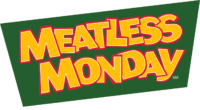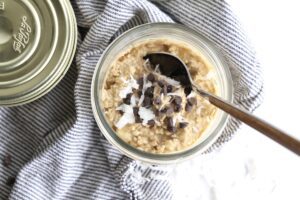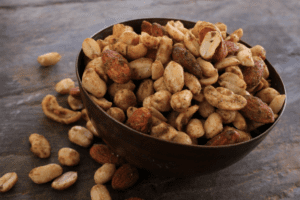How to Manage Your Cholesterol with Plant-Based Foods
Cholesterol is a waxy, fat-like substance found in your cells. Despite its association with cardiovascular events, cholesterol isn’t inherently dangerous or unhealthy; it’s actually necessary—for building cells, making vitamins and hormones, and creating substances necessary for digesting food. But the body, specifically the liver, produces all the cholesterol it needs. It’s the excess cholesterol that leads to health risks.
Cholesterol is often discussed in terms of LDL (low-density lipoproteins) and HDL (high-density lipoproteins). In general, LDL cholesterol is considered “bad,” while HDL is deemed “good.” Too much LDL in the blood increases the buildup of plaque along the artery walls, which can cause blocked passages, leading to a higher chance of cardiovascular diseases, such as heart attack and stroke.
Causes for high cholesterol vary, ranging from genetics to lack of physical activity, history of smoking, poor diet, and being overweight or obese. Animal products, specifically high-fat foods and ingredients, like full-fat dairy, red meat and processed meats, fried foods, and baked goods are all high in saturated and trans fats, which causes levels of LDL to increase in the blood leading to plaque buildup.
But food can also help you manage or even lower your cholesterol levels. Many minimally processed plant-based ingredients can help slow the absorption of cholesterol and reduce the amount of cholesterol the liver produces. Plant-based foods contain no cholesterol at all.
This Monday, see how you can manage your cholesterol levels with your food choices.
Oatmeal is a common breakfast staple—and for good reason. Starting your morning with oats provides your body with a dose of soluble fiber, a substance that binds to cholesterol and drags it from the body before it gets into circulation. You can either have a bowl of hot oatmeal or make this cool and refreshing recipe for chunky monkey overnight oats.
Not all nuts are created equal, but certain types, like peanut and walnuts, are rich in chemicals called phytosterols, which can help lower cholesterol. Other nuts, such as cashews and almonds, can also help lower LDL cholesterol levels. Choose no-salt added or unsweetened nuts.


All animal products contain cholesterol, but the real risk associated with eating too much of these foods is their saturated fat content. That’s because saturated fats affect how the liver handles cholesterol, and can ultimately raise your blood cholesterol. Full-fat dairy products, like milk, cheese, and cream; animal fats such as butter, ghee, and margarine; and processed meats, like sausages, cold cuts, and canned meats are all high in saturated fats and should be consumed in moderation.
Besides being a cost-effective source of plant-based protein, beans, lentils, and peas can also help manage cholesterol. Legumes are full of soluble and insoluble fiber, which can assist in lowering cholesterol absorption in the gut and keep you full and satiated after a meal. Ingredients like black beans, chickpeas, and lentils are excellent alternatives to meat, and can easily take on the flavors and textures of your favorite foods, like meatballs, tacos, or burgers.
Studies show that vegetarians have a much lower risk of dying from heart disease than meat eaters. Plant-based foods, like legumes, whole grains, fruits, and vegetables, contain no cholesterol and are typically lower in saturated fat. Cutting out meat and animal products one day a week is a good starting point for managing your cholesterol and adding more plant-based meals to your diet throughout the week. Try the Meatless Monday Challenge!
Olive oil is a healthier option when compared to saturated fats like butter and coconut oil. Olive oil is one of the key ingredients in the Mediterranean diet, which research has shown to reduce the risk of heart disease. Other studies have concluded that olive can help lower inflammation and improve blood vessel lining, reducing the risk of clotting.
Click here for more Meatless Monday recipes. When posting pictures of recipes to your social media network, tag @MeatlessMonday use #MeatlessMonday to show the plant-based community your creation.





